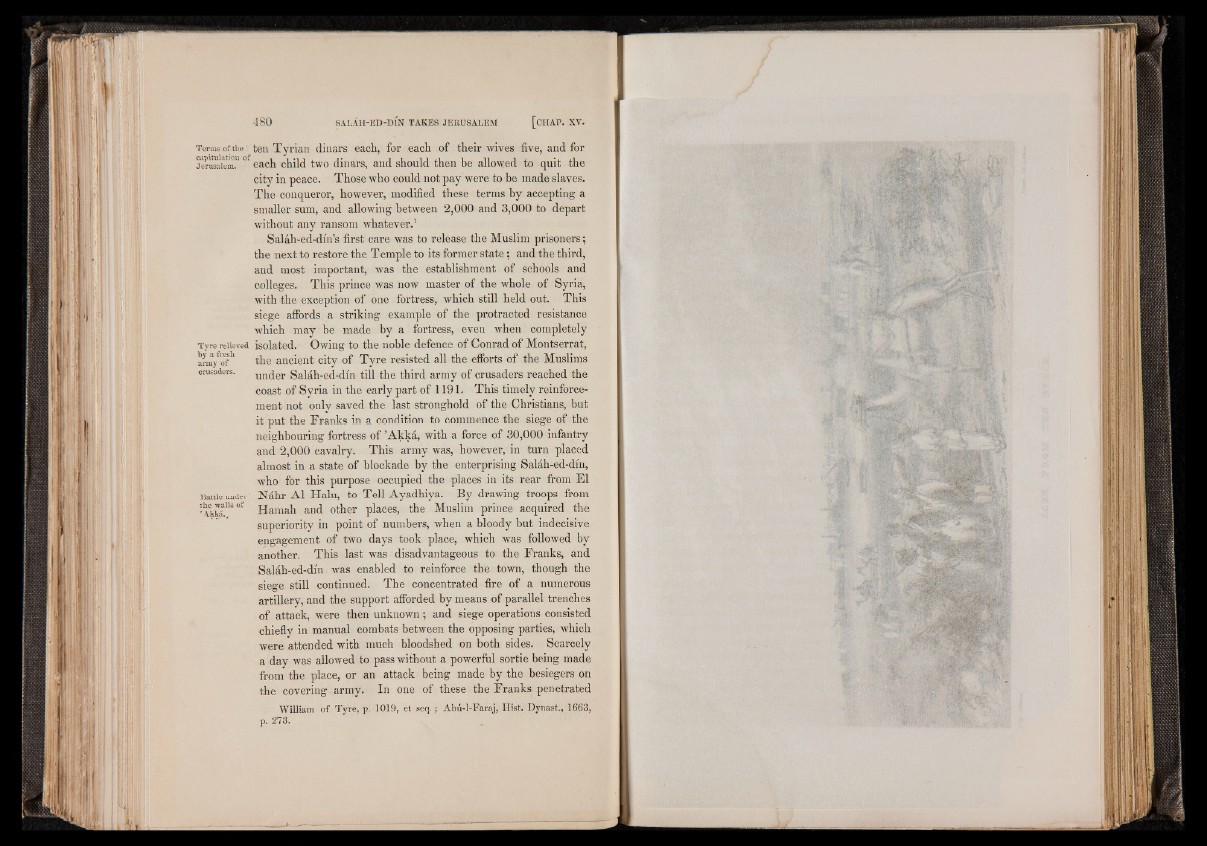
Terms of the ten Tyrian dinars each, for each of their wives five, and for
Jerusalem.0 ° each child two dinars, and should then be allowed to quit the
city in peace. Those who could not pay were to be made slaves.
The conqueror, however, modified these terms by accepting a
smaller sum, and allowing between 2,000 and 3,000 to depart
without any ransom whatever.'
Salah-ed-din’s first care was to release the Muslim prisoners;
the next to restore the Temple to its former state; and the third,
and most important, was the establishment of schools and
colleges. This prince was now master of the whole of Syria,
with the exception of one fortress, which still held out. This
siege affords a striking example of the protracted resistance
which may be made by a fortress, even when completely
Tyre relieved isolated. Owing to the noble defence of Conrad of Montserrat,
arm/of*1 the ancient city of Tyre resisted all the efforts of the Muslims
crusaders. un(jer Salah-ed-din till the third army of crusaders reached the
coast of Syria in the early part of 1191. This timely reinforcement
not only saved the last stronghold of the Christians, but
it put the Franks in a condition to commence the siege of the
neighbouring fortress of ’Akka, with a force of 30,000 infantry
and 2,000 cavalry. This army was, however, in turn placed
almost in a state of blockade by the enterprising Salah-ed-din,
who for this purpose occupied the places in its rear from El
Hattie under ] Nahr A1 Halu, to Tell Ayadhiya. By drawing troops from
’AkS*1S°f Hamah and other places, the Muslim prince acquired the
superiority in point of numbers, when a bloody but indecisive
engagement of two days took place, which was followed by
another. This last was disadvantageous to the Franks, and
Salah-ed-din was enabled to reinforce the town, though the
siege still continued. The concentrated fire of a numerous
artillery, and the support afforded by means of parallel trenches
of attack, were then unknown; and siege operations consisted
chiefly in manual combats between the opposing parties, which
were attended with much bloodshed on both sides. Scarcely
a day was allowed to pass without a powerful sortie being made
from the place, or an attack being made by the besiegers on
the covering army. In one of these the Franks penetrated
William of Tyre, p. 1019, et seq .; Abu-l-Faraj, Hist. Dynast., 1663,
p . 2 7 3 .